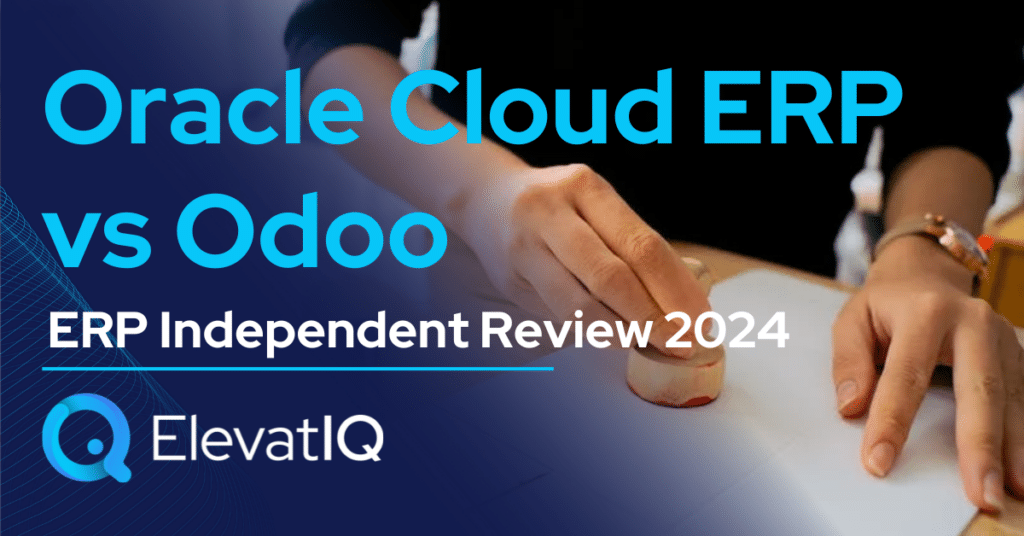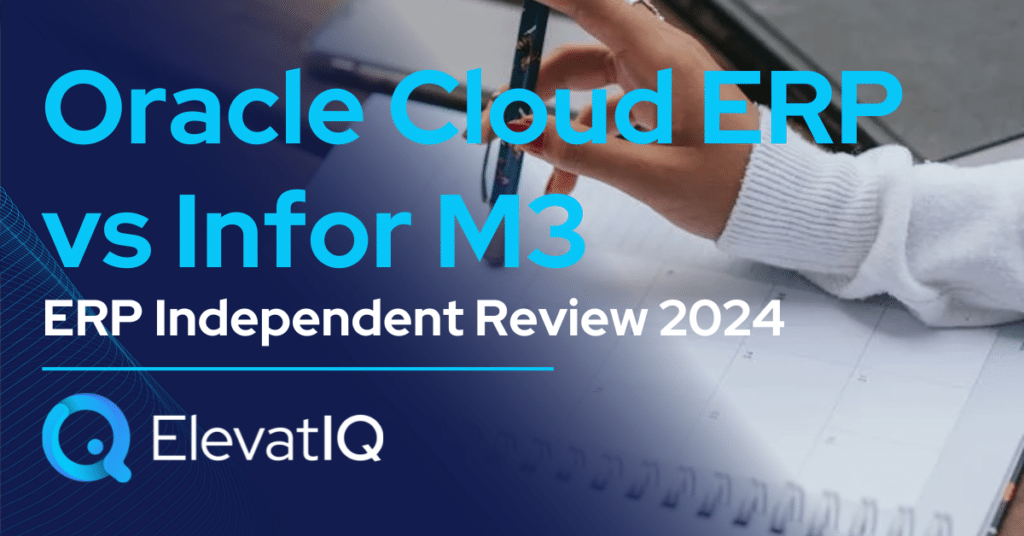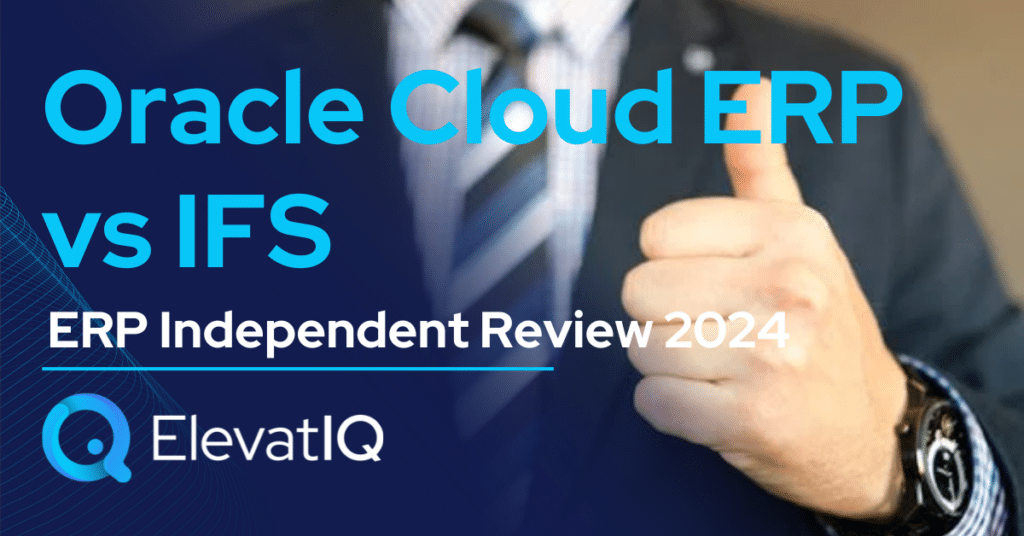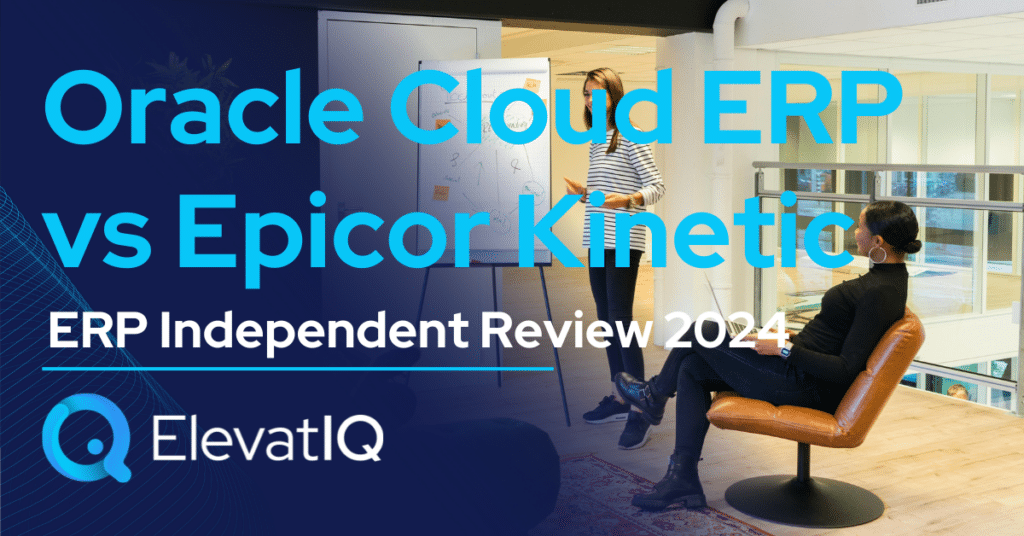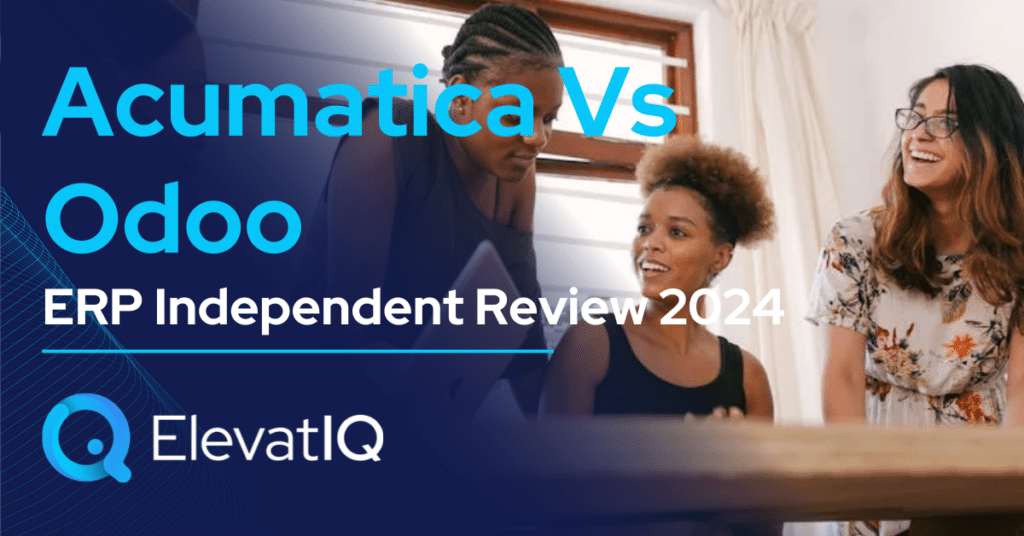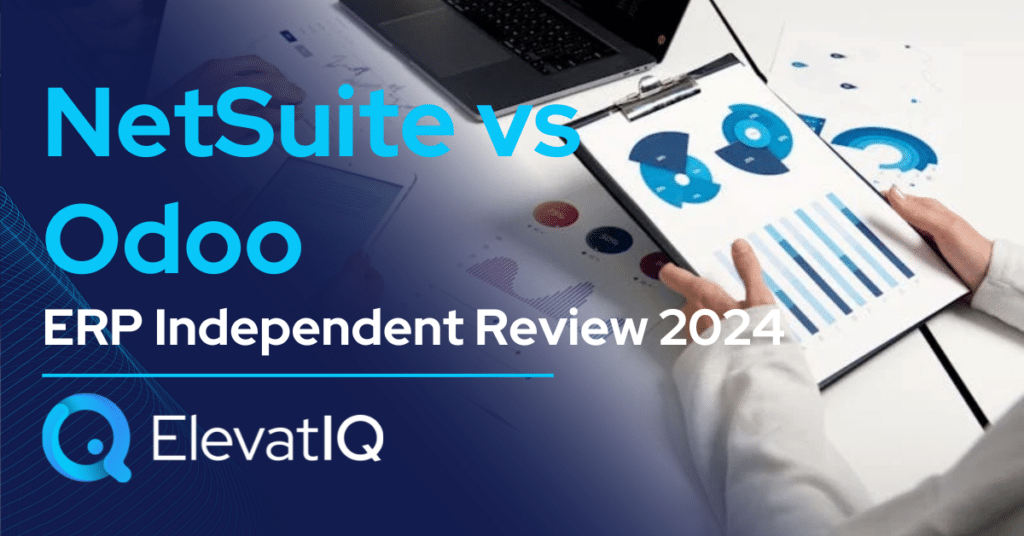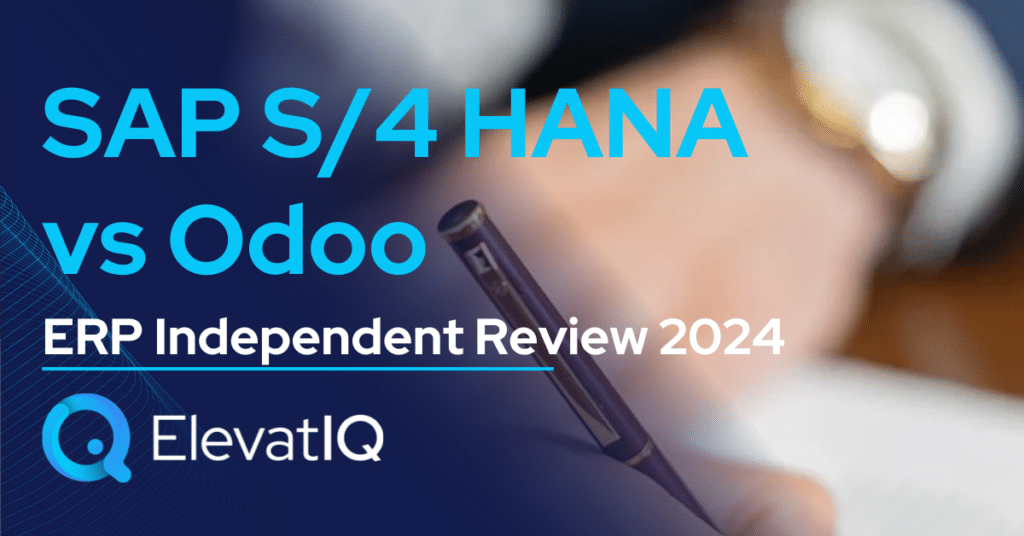Oracle ERP Cloud remains a top choice for large companies across diverse industries, particularly media, telecommunications, construction, energy, oil and gas, and healthcare. Despite the need for internal IT expertise, it is also suitable for companies with a need to integrate various third-party software systems. In contrast, Odoo caters to smaller companies transitioning from QuickBooks or Xero, streamlining operations from various add-ons, spreadsheets, and applications. Oracle Cloud ERP targets large, global companies with revenues generally exceeding $1 billion, offering consolidation in a unified database for diverse business models. Whereas, Odoo primarily caters to startups and smaller companies with revenue under $10 million.
Oracle Cloud ERP particularly caters to companies needing ledger-level security and hierarchical financial reporting. Additionally, Oracle Cloud ERP seamlessly integrates a powerful HCM solution along with a natively integrated EPM solution. Whereas, Odoo’s unique advantage lies in hosting operations across multiple countries in a single database.
Oracle Cloud ERP is a superior fit particularly for service-centric industries as it excels in risk management, advertising, and Cx cloud. On the other hand, Odoo is an excellent choice for budget-conscious companies, especially those with in-house development teams. Therefore, choosing between Oracle Cloud ERP vs Odoo requires a detailed examination, and this comparison offers valuable insights for ERP selection projects. Let’s delve deeper into the specifics.
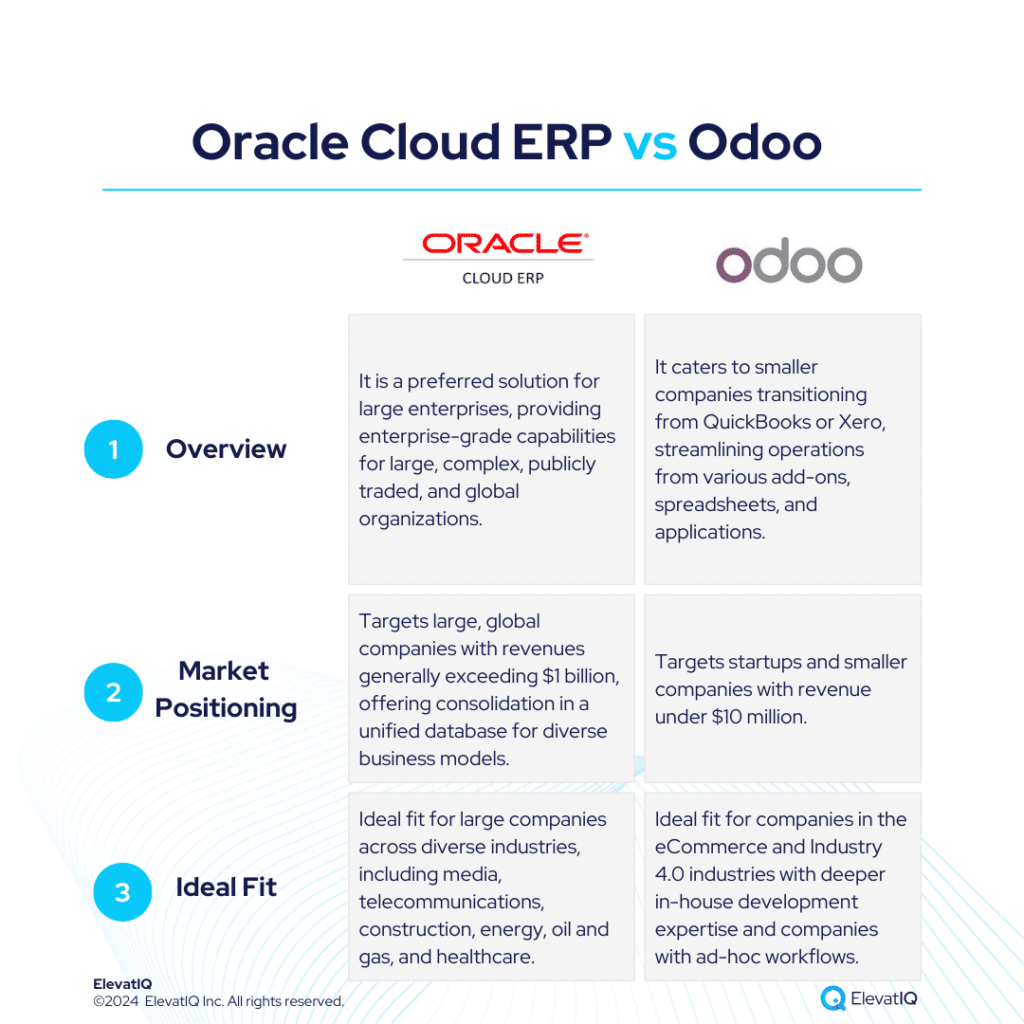

| Oracle Cloud ERP | Odoo | |
| Started in | 2012 | 2014 |
| Ownership by | Oracle | Odoo S.A. |
| No. of customers | 10,000+ | 100,000+ relatively smaller companies |
What is Oracle Cloud ERP?
Oracle ERP Cloud remains a top choice for large companies across diverse industries, particularly media, telecommunications, construction, energy, oil and gas, and healthcare (post-acquisition of Cerner). It is particularly suitable for organizations with substantial internal IT expertise and a requirement for integrating various proprietary and third-party software systems, such as patient claims management or utility billing solutions.
Oracle ERP Cloud is well-suited for global companies using it as their corporate financial ledger while employing other systems at the subsidiary level. Its robust financial capabilities cater to companies needing ledger-level security and hierarchical financial reporting, such as LOB, functions, or funds. Additionally, it seamlessly integrates a powerful HCM solution along with a natively integrated EPM solution.
Oracle ERP Cloud excels in risk management, advertising, and Cx cloud, particularly catering to industries like financial services and insurance. While it is a superior fit for service-centric industries, its success in product-centric industries has been limited. Often used as a corporate ledger, it might deploy another operationally rich solution at the subsidiary level in certain industries. Despite its strength for large enterprises, Oracle ERP Cloud is not the ideal choice for SMB customers.
What Is Odoo?
Odoo caters to smaller companies transitioning from QuickBooks or Xero, streamlining operations from various add-ons, spreadsheets, and also applications. It provides basic transactional processing across several enterprise software categories, such as ERP, CRM, and HCM. And a lot more in a consolidated database, eliminating the need for costly integrations.
An excellent choice for budget-conscious companies, especially those with in-house development teams, Odoo may face challenges without guidance from experienced ERP consultants. While Odoo’s modular design allows flexible app purchasing and provides scalability, it lacks tight integration at the data model level. This limitation can be a concern for companies particularly aiming for stringent financial control at the data layer. This is especially true for less seasoned companies that might already struggle to regulate their internal process and data codings.
A rapidly growing platform with substantial funding and a large user base, it particularly caters to startups and smaller companies with revenue under $10 million. Its unique advantage lies in hosting operations across multiple countries in a single database. Distinguishing from solutions like QuickBooks or Xero, it might also use separate financial instances for each country. The other similar ERP systems designed for multi-entity operations might not contain CRM-specific processes.
Oracle Cloud ERP vs Odoo Comparison
Navigating the choice between Oracle Cloud ERP vs Odoo is a significant decision for businesses particularly looking for operational efficiency and strategic alignment. Thus, this section delves into the comprehensive comparison of Oracle Cloud ERP vs Odoo across various critical dimensions.
| Oracle Cloud ERP | Odoo | |
| Global Operational Capabilities | Enterprise-grade multi-entity capabilities for global organizations. | Fit for smaller companies that might have entities. |
| Diverse Capabilities | Has the ability to support diverse business models. | Supports diverse industries, including product and service-centric startups. |
| Best-of-breed Capabilities | Comprehensive enterprise-grade best-of-breed options as part of the suite, including HCM, CPQ, WMS, RMS, and TMS. | Limited best-of-breed capabilities. |
| Last-mile Capabilities | Limited last-mile capabilities might require add-ons or custom development. | The last-mile capabilities for specific micro-verticals are limited. |
| Operational Functionalities | Has deeper supply chain and logistics capabilities. | Matrix functionality built as part of the inventory core. |
| Integration Capabilities | Enterprise-grade integration suite capabilities with pre-integrated components. | It lacks tight integration at the data model level. This limitation can be a concern for companies aiming for stringent financial control at the data layer. |
| Manufacturing Capabilities | Ideal for companies using it in the best-of-breed architecture with a focused manufacturing solution at the subsidiary level. | Matrix functionality built as part of the inventory core. However, many advanced transactions may have limited support natively. |
| Pricing Model | Named-user based | Per-user, per-app, per-month model |
| Key Modules | 1. Financial Management 2. Project Management 3. Procurement 4. Risk Management and Compliance 5. Enterprise Performance Management 6. Supply Chain and Manufacturing 7. ERP Analytics | 1. Sales 2. CRM 3. Inventory Management 4. Accounting and Finance 5. Purchase Management 6. Project Management 7. Manufacturing Management 8. Human Resources Management 9. Website and eCommerce |
Oracle Cloud ERP vs Odoo Feature Comparison
Both platforms offer a plethora of features and functionalities designed to streamline business operations and enhance efficiency. In this feature comparison, we delve into particularly the distinct capabilities of Oracle Cloud ERP vs Odoo across various critical dimensions, providing insights to aid businesses in making informed decisions regarding their ERP selection. Thus, this section discusses features under each of the following modules, particularly financial management, supply chain management, and manufacturing management.
Financial Management Comparison
In this section, we are discussing a detailed comparison of the financial management capabilities particularly offered by Oracle Cloud ERP vs Odoo. By examining their respective strengths and functionalities, particularly in managing financial processes. Businesses can therefore gain valuable insights to determine the best-suited ERP solution for their financial management needs.
| Oracle Cloud ERP | Odoo | ||
| Financial Management | General Ledger | Enterprise-grade ledgers to support multi-country operations at the global level with layers of sub-ledgers and complex closing process. | A financial record-keeping system that tracks all financial transactions and integrates seamlessly with other modules. |
| Accounts Receivable and Accounts Payable | Support for complex, global AR and AP processes, particularly shared services. | The AR tracks money owed to the business by customers, while AP manages money the business owes to suppliers. | |
| Cash Flow Management | Enterprise-grade capabilities for cash and treasury management. | Helps monitor and forecast company’s cash inflows and outflows to ensure liquidity and financial stability. | |
| Currency Management | Creates estimates for new or existing items, convert to bills of material, production orders. | Supports multi-currency transactions, automatic exchange rate updates, exchange difference entries, foreign currency reports, and managing bank accounts in multiple currencies. | |
| Tax Management | Provides centralized tax configuration, management, and reporting. | Automates tax calculations, updates, and reporting, ensuring compliance and efficiency across multiple currencies and modules. |
Supply Chain Management Comparison
In this comparison, we explore and analyze the supply chain management capabilities of Oracle Cloud ERP vs Odoo, shedding light particularly on their respective strengths and weaknesses.
| Oracle Cloud ERP | Odoo | ||
| Supply Chain Management | Warehouse Management | Streamlines warehouse operations, enhances inventory management and ensures seamless multichannel fulfillment, end-to-end inventory visibility, and integration with advanced features for efficient resource allocation and workflow optimization. | Optimizes inventory control, streamlines operations, and enhances visibility with real-time tracking and automated processes. |
| Service Management | Ensures efficient and effective service delivery through features like service request management, incident handling, and knowledge management. | Streamlines service delivery, enhances customer satisfaction, and optimizes resource allocation with integrated project management and invoicing. | |
| Inventory Management | Enables efficient management of goods flow, including inbound, within the warehouse, and outbound, while also supporting consigned inventory capabilities. | Offers real-time tracking, multi-location management, and automated reordering to optimize stock levels and streamline operation. | |
| Purchase Order Management | Helps organizations digitally manage and process purchase orders for supply chain and procurement activities, improving efficiency and reducing overhead costs. | Automates procurement processes, optimizes supplier interactions, and ensures accurate order tracking and invoicing. | |
| Requisition Management | Allows users to efficiently view, create, submit, edit, and manage requisitions, ensuring proper approval workflows and seamless procurement processes. | Streamlines the process of creating, reviewing, and approving purchase requisitions, ensuring compliance with budgets and procurement policies |
Manufacturing Management Comparison
In this comparison, we explore and analyze the manufacturing management capabilities of Oracle Cloud ERP vs Odoo, shedding light, particularly on their respective strengths and weaknesses.
| Oracle Cloud ERP | Odoo | ||
| Manufacturing Management | Production Planning | Offers production planning capabilities including capacity planning, MRP, shop floor control, and demand planning. | Optimizes manufacturing processes by efficiently scheduling, allocating resources, and managing work orders to meet production goals. |
| BOM and Routing | Allows you to define lists of components associated with a parent item and outlines step-by-step operations required for manufacturing an assembly. | Defines the components and operations required for manufacturing a product, optimizing production efficiency. | |
| Advanced Planning and Scheduling | Plans all supply chain facilities, supporting both short-term detailed scheduling and long-term aggregate planning within a single plan. It also considers finite capacity constraints and offers holistic optimization capabilities. | Optimizes production by centralizing data, providing real-time visibility, and automating scheduling to enhance efficiency. |
Pros of Oracle Cloud ERP vs Odoo
When evaluating ERP solutions, understanding the distinct advantages of Oracle Cloud ERP vs Odoo is crucial. In this section, we are particularly exploring the strengths of Oracle Cloud ERP vs Odoo across various dimensions. Thus, shedding light on their respective capabilities and functionalities.
| Oracle Cloud ERP | Odoo |
| The product architecture supports the needs of large, complex financial organizations particularly with deep sub-ledger hierarchies. | It is widely adopted, especially among Industry 4.0 companies and also other machinery businesses. |
| Oracle Cloud ERP has an ecosystem of experienced consultants capable of handling the architecture of such complex enterprises. | It can support many different business models, many different localizations, countries, etc, as part of the same product. |
| The embedded HCM and CRM processes are suitable for large non-profit organizations. The P2P workflows are friendlier for the indirect procurement needs of non-profit organizations. | The availability of cheaper technical talent globally helps product-centric startups extend or augment core capabilities. |
| The workload Oracle Cloud ERP is designed to process millions of GL entries per hour. | The lean data model and workflows make it easier for product-centric startups transitioning from QuickBooks-like solutions. |
Cons of Oracle Cloud ERP vs Odoo
Just like recognizing strengths is important, it’s also crucial to weigh the specific drawbacks of Oracle Cloud ERP vs Odoo. Therefore, in this section, we will delve into the limitations and challenges associated with Oracle Cloud ERP vs Odoo across various operational and financial dimensions.
| Oracle Cloud ERP | Odoo |
| While functionally capable, transactional and financial traceability might not be as intuitive for large, complex enterprises. | The open-source nature leads to a tendency to over-customize, particularly resulting in an inferior product experience. |
| The data model and translations required to be successful may be too overwhelming for companies outgrowing QuickBooks or other smaller ERP systems. | Consisting primarily of developers, the ecosystem particularly doesn’t have a seasoned program, change management, and business consultants. |
| Might struggle with the complex MRP runs hitting millions and millions of costing, scheduling, and also WIP industries. | The last-mile capabilities for specific micro-verticals are limited, requiring significant customization for their work with specific industries. |
| Longer time in customizing and configuring as the software design may consist of unnecessary allocation, commitment, and approval functionality for large companies. | Mature capabilities such as MRP, allocation, and batch are not as detailed as with other richer ERP systems. |
| The P2P processes, CPQ, and manufacturing capabilities may not be the friendliest for product-centric organizations particularly with the needs for MES, PLM, and S&OP-centric processes. | Adoption in the apparel manufacturing space, which is more complex, may not be as widespread. |
| Limited last-mile functionality for quality and compliance, which will also require an add-on or custom development. | To tailor, customize, and configure these capabilities—already included in the suite, Odoo requires a very mature internal IT team. |
Conclusion
In conclusion, Oracle Cloud ERP vs Odoo cater to distinct market segments with their tailored ERP solutions. Oracle Cloud ERP is particularly ideal for large enterprises with complex financial structures and global operations, offering advanced financial management, risk management, and seamless integration across various business functions. Its enterprise-grade capabilities make it a strong contender for industries like telecommunications, healthcare, and also construction. However, it might be overwhelming for smaller businesses due to its complexity and the significant internal IT expertise required to manage it.
On the other hand, Odoo stands out as a cost-effective solution for small to mid-sized companies, especially startups and businesses with in-house development teams. Its modular design allows companies to scale easily, while its streamlined processes provide a straightforward transition for those moving from smaller accounting platforms like QuickBooks or Xero. Despite lacking the deep integration capabilities of Oracle Cloud ERP, Odoo’s flexible and budget-friendly approach makes it a practical choice for businesses looking for agility and customization without the complexity of larger ERP systems.
Both systems have their strengths and limitations, so businesses should carefully evaluate their specific need. Also, seeking assistance from an independent ERP consultant can significantly aid the decision-making process. To get a 360-degree view of feature comparisons, it’s essential to explore not only Oracle Cloud ERP vs. Odoo but also insights from other analyses such as Oracle Cloud ERP vs. NetSuite, SAP S/4 HANA, Acumatica, Dynamics F&O, Dynamics 365 BC, Infor LN, Infor M3, Epicor Kinetic, and IFS.



